How to Start a Blog: Easiest Beginner-Friendly way (2025 Edition)

Everywhere, people are turning their stories into content, and content into income. They’re building blogs, growing audiences, and getting paid online for that.
And you? You’ve been thinking about it, too.
You know how to write. You have thoughts worth sharing. Maybe you even help others in the comment section more than you realize. But instead of hitting “publish,” you keep Googling, overthinking, and wondering:
“Where do I even begin?”
Good news: this is where you begin. Starting a blog is easier than ever, and you can do it almost for free.
TL;DR
If you’re ready to start a blog but don’t know where to begin, this post shows you how to create one. No coding, no paid tools required. Perfect for total beginners who want to build something real and grow online.
You will see:
- The easiest way to launch a blog from scratch
- Which free platform works best for your goals
- How to choose a niche and write catchy posts
- Smart ways to grow your audience and earn from your blog
- Common mistakes to avoid as a blogger
Let’s help you go from “I should start a blog…” to “I’m so glad I did.”
Whether you want to blog as a creative outlet, as a personal brand, or eventually to make money, this guide will walk you through every step with zero tech overwhelm, even if you are a complete beginner.
Let’s finally turn your voice into something the world can find and follow.
What is a Blog?
Simply put, a blog is your digital space to share thoughts and connect with blog readers. Usually, it’s a dynamic, regularly updated website or web page where writers or businesses publish articles, expertise, opinions, reviews, or educational content.
The word “blog” comes from “weblog,”. This word was used by Jorn Barger in 1997.
Peter Merholz humorously divided it into “we blog” in 1999. Evan Williams then popularized the term through Pyra Labs and the Blogger platform, making “blog” a verb and a noun in online writing.
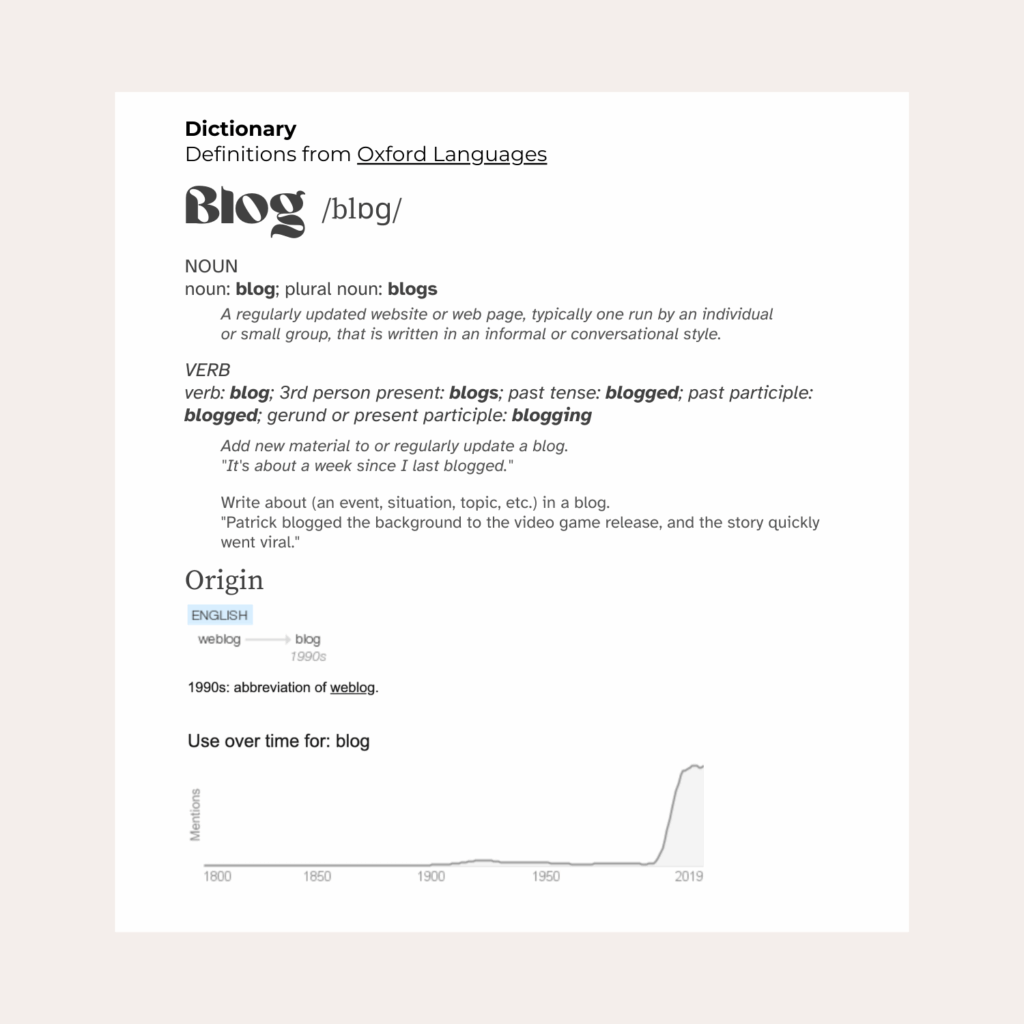
The chronological order of blog posts is reversed. They may consist of links, pictures, videos, and text. Discussions and comments allow readers and viewers to participate.
You might start a blog to:
- Share your expertise and experiences
- Teach valuable skills
- Build your reputation as an expert
- Grow an email list
- Make money
Or you may be driven by multiple goals of the above.
If you want to let people know about experiences, expertise, thoughts, or if you’re building a business, blogging offers you a flexible platform to market yourself and your brand.
Why Start a Blog?
Every year, someone declares that blogging is dead. And every year, the numbers prove them spectacularly wrong. Let’s see some myths and reveal why this is the perfect time to jump into blogging.
“Nobody reads blogs anymore!”
Plot twist: Everyone’s still reading blogs!
As of 2025, there are over 600 million active blogs worldwide, with an incredible 6 million new blog posts published every single day – that’s 2.5 billion posts per year! If nobody was reading them, why would people keep writing them?
The blogging industry has grown by 12% since 2015, and is approaching 2 billion web pages. People aren’t just creating content for fun – they’re responding to massive reader demand.
“Social media killed blogging!”
Think again – blogs are thriving alongside social platforms!
Sure, people spend hours scrolling through TikTok and Instagram, but when they need real, trustworthy information, they turn to blogs. Social media posts that cite blog sources get 2x more credibility and engagement than those without citations.
Here’s what’s really happening: Social media creates the spark of interest, but blogs provide the deep dive. People discover topics on social platforms, then head to blogs for comprehensive guides, detailed reviews, and expert insights they can actually trust.
The smartest content creators aren’t choosing between social media OR blogging – they’re using social platforms to drive traffic to their blogs, creating a powerful ecosystem where both formats amplify each other’s success.
“Everything worth saying has already been said!”
Your unique perspective is what people are waiting for.
The average blog post is now 1,151 words – that’s a 42% increase over the last 5 years! People aren’t looking for more of the same – they’re craving fresh takes on familiar topics.
66% of marketers are using blogs in their strategies because authentic voices are the most credible. When you share your experience, expertise, and insights, your content gives the best value to the readers.
“Only established influencers make money from content!”
This myth is costing people thousands in potential income.
Blogs that have been active for 5-10 years earn an average of $5,450.90 per month. That’s over $65,000 annually from a single blog!
Established bloggers with 1000+ posts are earning an average of $7,981.67 per month – nearly $96,000 per year. Even newer bloggers are seeing real results, with those having 300+ posts earning over $1,000 monthly.
The blogging industry is projected to grow by $417.85 billion between 2021 and 2025 – there’s serious money flowing into this space.(Source: Inbound Blogging)
Blog Income Potential & Timelines
Blogging can pay off if you stick with it.
According to ProBlogger, 4% of bloggers earn over $10k/month, and 9% make $1K/month or more. Ryan Robinson, cofounder of RightBlogger, outlines realistic timelines based on his experience:
| Earning Level | Timeline | What It Typically Takes |
|---|---|---|
| $100/month | 6–12 months | Income from affiliate links, ads, or small sponsorships. |
| $1,000/month | 1–2 years | Consistent content, SEO ranking, and basic monetization strategy. |
| $10,000/month | 3–4 years | Full-time income with multiple revenue streams. |
| $25,000/month | 4–5 years | High-traffic blog, solid branding, and product or service sales. |
| $50,000/month | 5–6 years | Scaled growth, established authority, and possibly a small team. |
This isn’t a get-rich-quick game. But with focus and time, blogging can become a serious income stream.
“AI will replace human bloggers!”
Plot twist: AI is actually making bloggers more successful.
80% of bloggers are now using artificial intelligence to enhance their content, not replace their creativity. AI handles the research and editing grunt work, freeing bloggers to focus on strategy and storytelling.
90% of bloggers publish their content across social media platforms, amplifying their reach beyond just their websites. The combination of human insight + AI efficiency is creating better content than ever before.
Why 2025 is Actually Perfect for New Bloggers
The blogging opportunities have never been more welcoming for newcomers. Having a blogging platform is easier than ever. AI tools help with all the slow tasks, social media provides built-in audiences, and readers searching for authentic voices.
You have every advantage at your fingertips. Plus, while only 5% of bloggers currently earn a full-time income, those who stick with it and use the right strategies can expect to make their first $100 within 1-6 months.
The Easiest Way to Start Your First Blog
Starting a blog doesn’t have to feel like climbing Mount Everest. You don’t need to be very tech-savvy or spend a lot of money to begin. You just need a simple path with zero guesswork.
This section walks you through the easiest way to launch your first blog from scratch, without coding or overwhelm. Just clear steps, the right tools, and your voice at the center of it all.
Choose Your Niche
Your niche sets the direction for your blog. The right one helps you attract the right audience, stay consistent, and build something valuable. A strong niche aligns with your skills, offers room to grow, and has real potential to generate income.
To choose well, focus on what you enjoy, what you’re good at, and what your viewers need. Here’s what to look for:
| Feature | Why It Matters |
| Clear focus | Helps you stand out and build authority faster. |
| Passion & expertise | Keeps your content authentic and sustainable long-term. |
| Audience needs | Ensures you’re solving real problems for real people. |
| Monetization potential | Opens up opportunities for ads, products, affiliates, or sponsors. |
| Consistency | Makes it easier to keep publishing and growing over time. |
Do Keyword Research and Validate Your Idea
Now, we get a bit strategic. You need to know what people are actually searching for, and the way to do that is through keyword research. Keywords show you what people want to read and help you decide what to write.
Start with tools like Google’s Keyword Planner or Ubersuggest. These are completely free tools. Just type the topics related to your niche and see what comes up. Look for:
- Search volume (how many people are searching this topic)
- Competition level (the crowd in the space)
- Frequently asked questions by the people
Pro tip 💡
Don’t get obsessed with finding the “perfect” keywords. If you’re passionate about your topic and people are searching for it (even a little), you’re on the right track.
Set Up Your Blog Name, Domain, and Hosting
This is where your blog starts feeling real! Your domain name is your blog’s address on the internet (like yourawesomeblog.com), and hosting is like renting space to store all your blog files.
Picking Your Domain Name:
- Keep it short and memorable
- Make it easy to spell and say out loud
- Avoid numbers and hyphens if possible
- Consider including your name or niche keywords
Choosing Hosting: Look for hosting providers that offer one-click WordPress installation (most do these days). Popular beginner-friendly options include Bluehost, SiteGround, or HostGator. Expect to pay around $3-10 per month to start.
Many hosts bundle your domain and hosting together, which makes things super easy. Just follow their setup wizard. It’s usually as simple as clicking a few buttons.
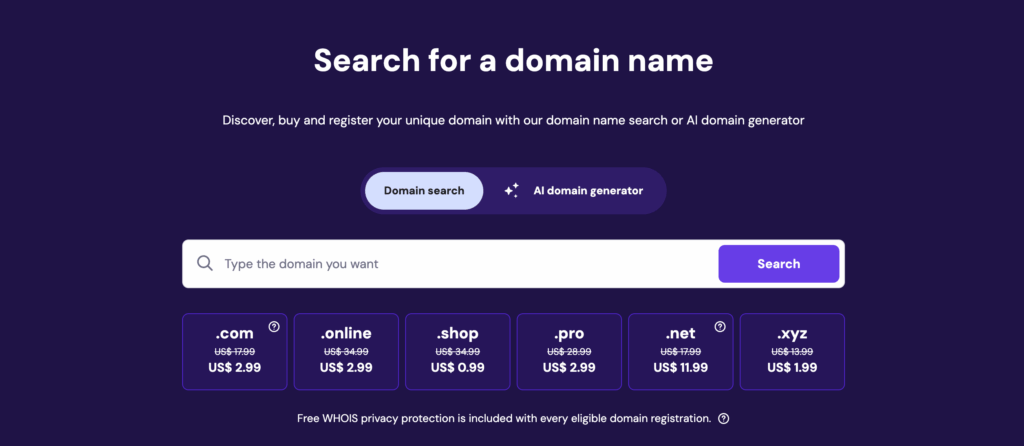
Choose Your Blogging Platform
Here’s where I’m going to save you a ton of research time: go with WordPress. It’s free, flexible, and powers about 43% of the entire internet. Seriously.
WordPress gives you complete control over your blog. You own your content, and you can customize everything. And there’s a massive community of people creating themes, plugins, and tutorials to help you out.
Sure, there are other platforms like Wix, Squarespace, or Medium, but WordPress is like learning to drive in a car you’ll actually want to keep driving. It might take a little longer to learn, but you’ll thank yourself later.
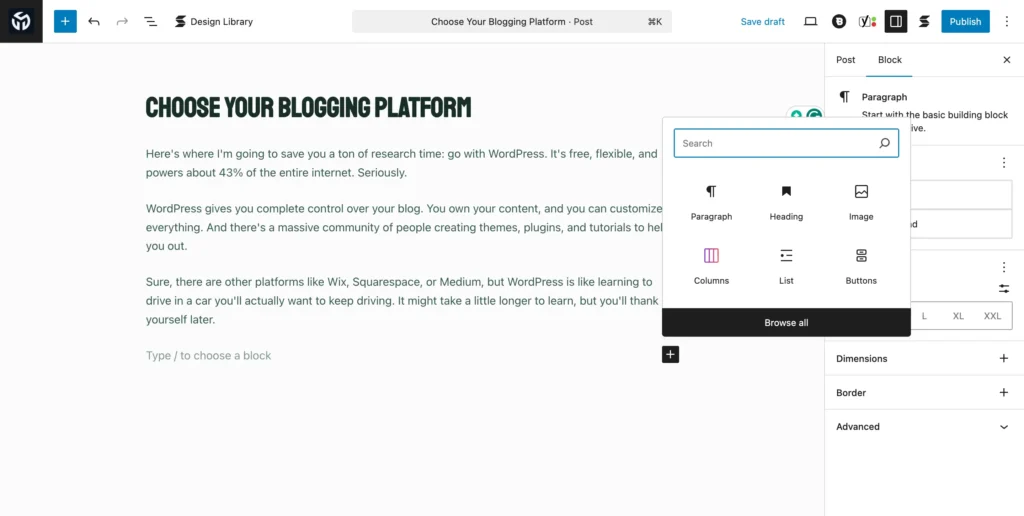
Build Your Email List (From Day One!)
Here’s the biggest mistake new bloggers make: they wait to start building their email list. Don’t be that person! Your email list is like your direct hotline to your biggest fans.
Set up a simple email signup form with a service like Mailchimp, ConvertKit, or MailerLite. Offer something valuable in exchange for people’s email addresses – maybe a helpful guide, checklist, or exclusive content.
Even if only your mom signs up at first, you’re building the habit and infrastructure for when your blog starts growing.
Decide on Content Types and Set a Content Calendar
Now for the fun part – planning what you’ll actually write about! Mix up your content types to keep things interesting:
- How-to guides: Teach people something useful
- Personal stories: Share your experiences and lessons learned
- Lists and roundups: “10 Best…” or “5 Ways to…” posts
- Reviews: Share your honest opinions about products or services
- Behind-the-scenes: Show people your process or daily life
Create a simple content calendar – even just a Google Doc or Notion page works. Plan out 4-8 blog post ideas to start. This takes the guesswork out of “What should I write about today?”
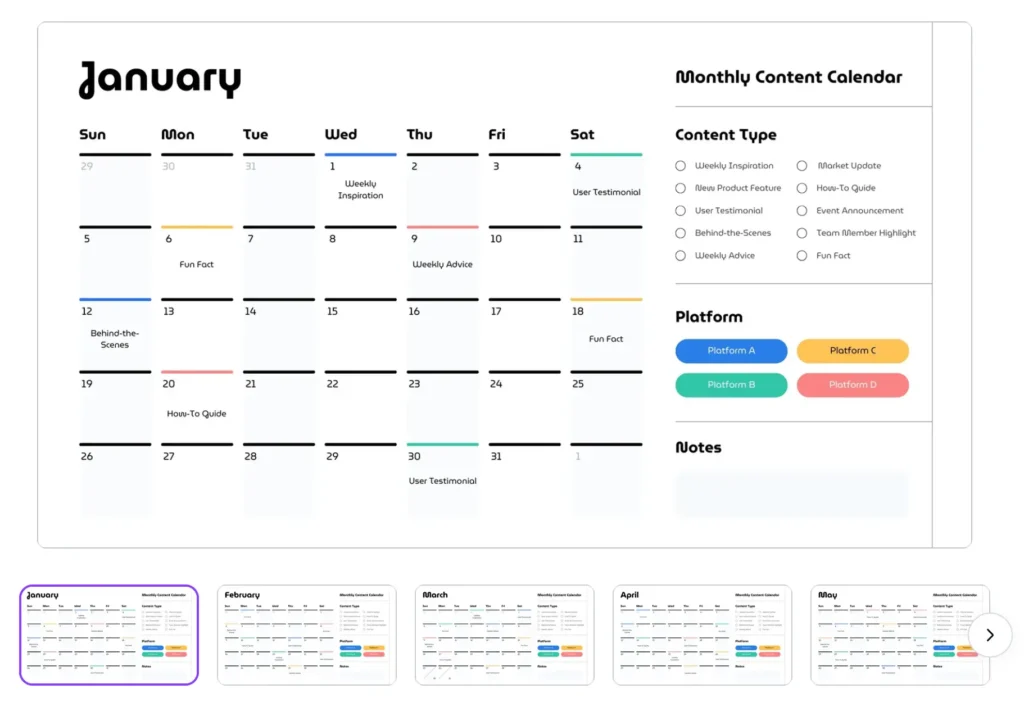
Design Your Blog Page and Write Your First Post
Time to make your blog look good! Choose a clean, professional WordPress theme that matches your vibe. Don’t overthink this – you can always change it later.
Focus on:
- Easy navigation
- Fast loading times
- Mobile-friendly design
- Clear contact information
For your first blog post, write something personal and introductory. Tell people who you are, why you started this blog, and what they can expect. It doesn’t have to be perfect – just authentic and helpful.
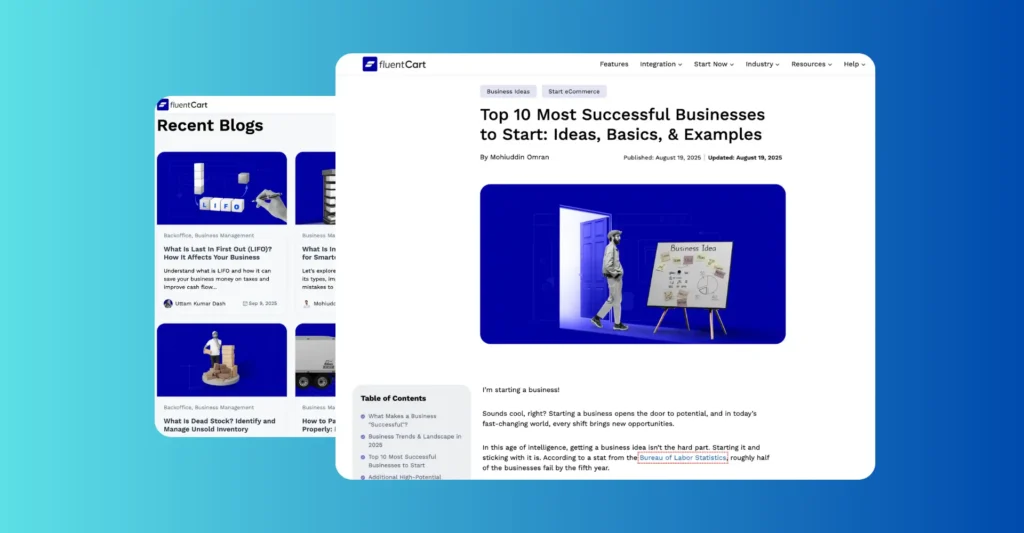
Publish Your First Blog and Share It
Deep breath. Hit that publish button!
Your first post doesn’t have to change the world – it just needs to exist. Share it with friends, family, and on your social media accounts. Ask for feedback and celebrate this huge milestone.
Remember, every successful blogger published their first imperfect post at some point. You’re officially in the game now!
How to Promote Your Blog
Creating great content is only half the battle. The other half? Making sure people actually find it. Let’s talk about how to get your blog in front of the right eyeballs.
SEO Basics
SEO (Search Engine Optimization) is basically making your blog friendly to search engines like Google. Think of it as helping Google understand what your content is about so it can recommend it to the right people.
The basics you need to know:
- Use your main keyword naturally in your title and throughout your post
- Write descriptive headlines that make people want to click
- Add alt text to your images (describe what’s in the photo)
- Link to other relevant posts on your blog
- Make sure your blog loads fast and works on mobile phones
Install a plugin like Yoast SEO or RankMath – they’ll guide you through optimizing each post with helpful green/red lights. It’s like having a friendly SEO coach right in your dashboard.
Social Media Sharing and Promotion
Social media is your blog’s best friend for getting initial traction. You don’t need to be on every platform – just pick 2-3 where your ideal readers hang out.
Smart social media strategies:
- Share snippets and teasers from your blog posts
- Join Facebook groups or LinkedIn communities in your niche
- Use relevant hashtags on Instagram and Twitter
- Engage genuinely with other people’s content (don’t just promote yourself)
- Repurpose your blog content into different formats (Instagram carousels, Twitter threads, etc.)
Pro tip: Schedule your social media posts using tools like Buffer or Later. Spend one hour a week planning, then let automation do the rest.
Guest Blogging, Backlinking, and Collaboration
This is where you start building relationships with other bloggers in your space. It’s like making friends who happen to have audiences that might love your content too.
How to get started:
- Comment thoughtfully on other blogs you genuinely enjoy
- Reach out to bloggers for coffee chats or virtual interviews
- Offer to write guest posts for established blogs in your niche
- Collaborate on projects, challenges, or roundup posts
- Share other people’s content and tag them
Remember, this is about building genuine relationships, not just getting links. Be helpful first, and the promotional opportunities will follow naturally.
Email Marketing (Your Secret Weapon)
Your email list is pure gold because these people have specifically said they want to hear from you. Treat them like VIPs!
Email marketing that actually works:
- Send a weekly or bi-weekly newsletter with your best content
- Share behind-the-scenes stories and personal updates
- Offer exclusive content or early access to new posts
- Ask questions and encourage replies to build real connections
- Segment your list based on interests for more targeted content
The key is being consistent and valuable. People should genuinely look forward to your emails, not see them as spam.
How to Make Money from Blogging
Let’s talk about everyone’s favorite topic – turning your blog into a money-making machine! There are tons of ways to monetize, so don’t feel like you have to do everything at once.
Advertisements
This is probably the most obvious way to make money blogging. You display ads on your site and get paid when people click or view them.
Popular ad networks:
- Google AdSense: Easy to set up, but you need decent traffic to make good money
- MediaVine or AdThrive: Higher payouts, but require 50,000+ monthly sessions
- Direct sponsorships: Work directly with brands for higher rates
Just remember – don’t go crazy with ads. Too many can slow down your site and annoy your readers. Find the sweet spot between earning money and providing a good user experience.
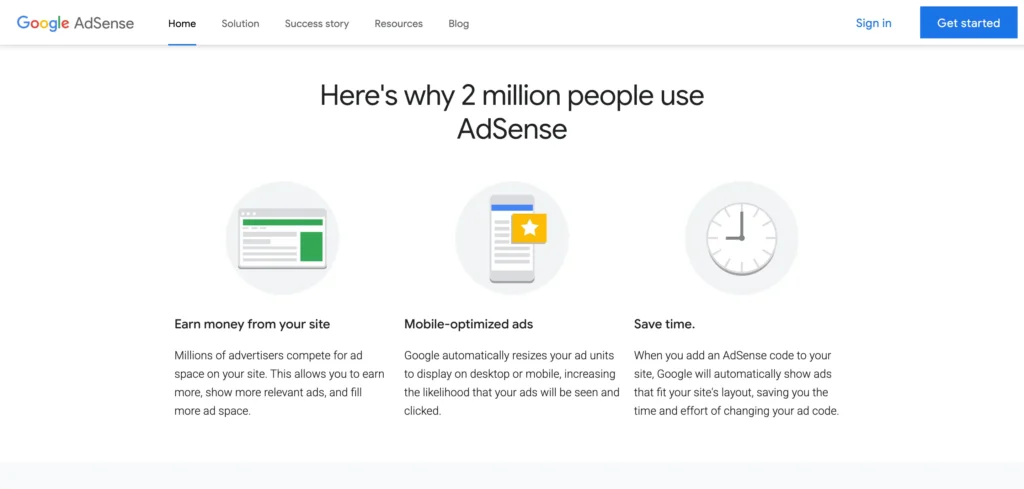
Affiliate Marketing
This is where you recommend products you actually use and love, and earn a commission when people buy through your links. It’s like being a helpful friend who gets a thank-you bonus.
How to do affiliate marketing right:
- Only promote stuff you genuinely believe in
- Disclose your affiliate relationships (it’s legally required anyway)
- Write honest reviews, including pros and cons
- Focus on solving problems, not just pushing products
Popular affiliate programs include Amazon Associates, ShareASale, and individual brand programs. Start with products you’re already using and expand from there.
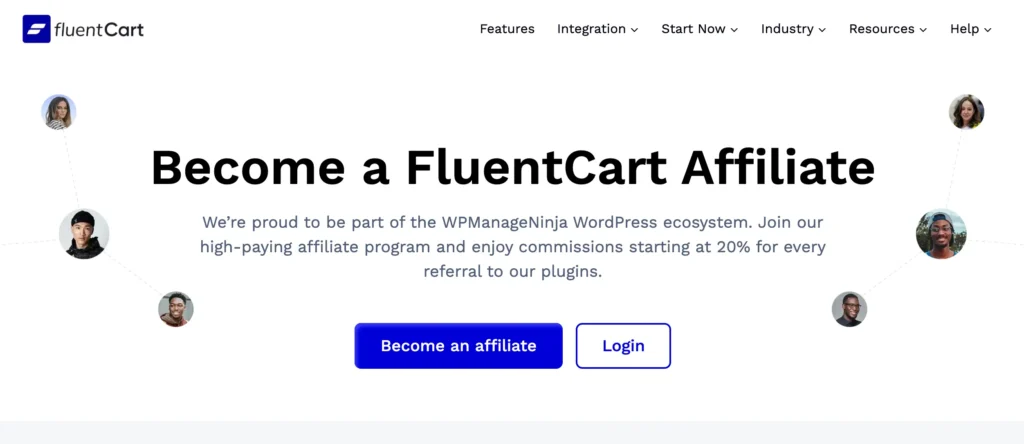
Product Offers (Digital or Physical)
Creating your own products gives you the highest profit margins and full control over your income.
Digital product ideas:
- Online courses teaching your expertise
- E-books or guides
- Templates, worksheets, or planners
- Stock photos or graphics
- Software tools or apps
Physical product ideas:
- Branded merchandise
- Books or workbooks
- Crafted items related to your niche
- Subscription boxes
Start simple – maybe a $10 digital guide – and work your way up to bigger offerings as you learn what your audience wants.
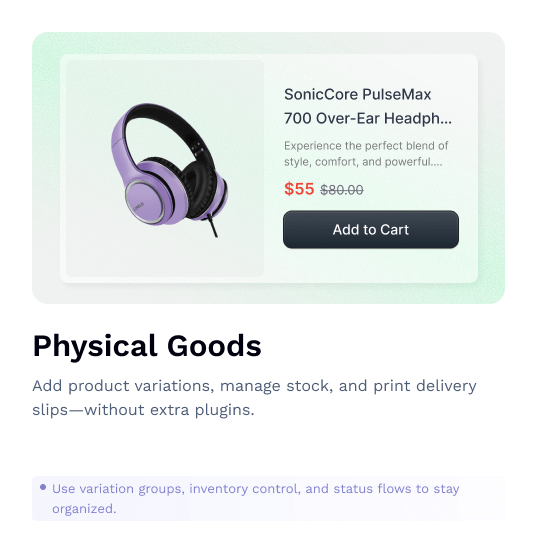
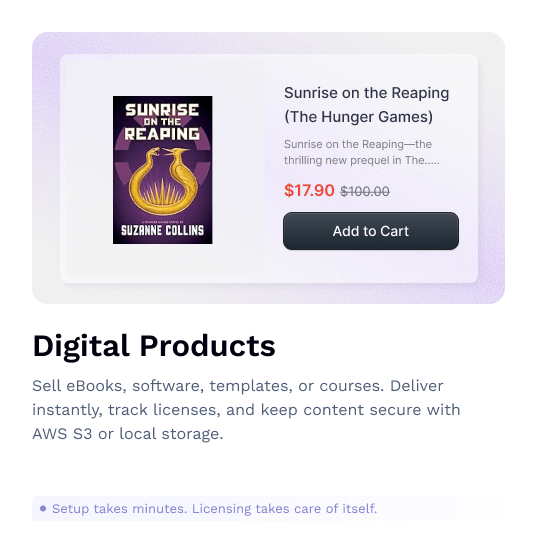
Subscription Services
People love exclusive, ongoing value. Consider offering premium content to paying subscribers.
Subscription ideas:
- Members-only blog posts or videos
- Monthly live Q&A sessions
- Private Facebook group or Discord server
- Weekly meal plans, workout routines, or other niche-specific content
- Early access to all your content
Coaching and Consulting
If you have expertise that people want to learn, one-on-one or group coaching can be incredibly lucrative.
Types of coaching/consulting:
- One-on-one strategy sessions
- Group coaching programs
- Done-for-you services
- Workshops or masterclasses
- Mastermind groups
This is often the fastest way to make serious money from blogging, but it requires trading your time for money.
Offer Services
Turn your blog into a showcase for your professional services.
Service ideas:
- Freelance writing or content creation
- Design or development work
- Virtual assistant services
- Social media management
- Photography or videography
Your blog posts become your portfolio, proving you know what you’re talking about and attracting potential clients.
Start a Podcast
Podcasting is huge right now, and it opens up additional revenue streams like sponsorships, premium episodes, and expanded audience reach.
Your blog content can easily become podcast episodes, and vice versa. It’s like doubling your content without doubling your work.
Monetize YouTube Videos
Video content is exploding, and YouTube has multiple monetization options.
Turn your blog posts into videos, create vlogs about your blogging journey, or make tutorials in your niche. YouTube ad revenue, sponsorships, and affiliate marketing through videos can all add up.
Legal and Tax Consideration
Nobody likes talking about this stuff, but it’s important! As your blog starts making money, you’ll need to:
- Keep track of all your income and expenses
- Understand tax implications in your country/state
- Have clear terms of service and privacy policy on your blog
- Understand FTC guidelines for disclosures
- Consider getting business insurance
Don’t let this scare you. Just be aware that successful blogging is a real business, and businesses have responsibilities.
Blog Maintenance & Growth
Creating a blog is only the beginning. To build something that lasts, you’ll need to check in regularly, make updates, and stay open to growth.
This section covers the basics of keeping your blog running smoothly. Plus smart ways to track progress and adapt as you go.
Blog Updates
Stale content and outdated sites won’t keep readers coming back. Regular updates both to your content and behind-the-scenes tech help your blog stay relevant, professional, and trusted.
Content updates
- Refresh old posts with current info
- Fix broken links or outdated references
- Update stats, quotes, and examples
- Improve formatting and add visuals where needed
Technical updates
- Keep WordPress or your platform and plugins up to date
- Monitor site speed and mobile-friendliness
- Back up your blog regularly in case things go wrong
Link Building for SEO & Authority
Want to grow your blog’s visibility in search? You’ll need backlinks. These are links from other websites pointing to yours. They tell Google your content is trustworthy.
There are a few main ways to build them:
- Add links: Create social profiles, directory listings, and forum posts. Great for new blogs.
- Ask for links: Reach out to bloggers or site owners with relevant content. Build relationships over time.
- Earn links: Publish valuable content (research, tools, guides) that people naturally want to share.
- Guest post: Contribute to other blogs in your niche with helpful content + a natural backlink.
Not all links are equal. Focus on relevance, authority, and placement. One high-quality link is worth more than dozens of weak ones.
Growth Tracking
Want your blog to go somewhere? You need to know where it is now. Regularly tracking simple metrics gives you the info you need to grow with purpose, not guesswork.
Pay attention to:
- Website traffic (Google Analytics is a great start)
- Email list growth
- Social media engagement
- Income (if you’re monetizing)
- Top-performing posts and traffic sources
Set aside time monthly or quarterly to review your numbers. See what’s working, spot what’s not, and adjust your strategy as needed.
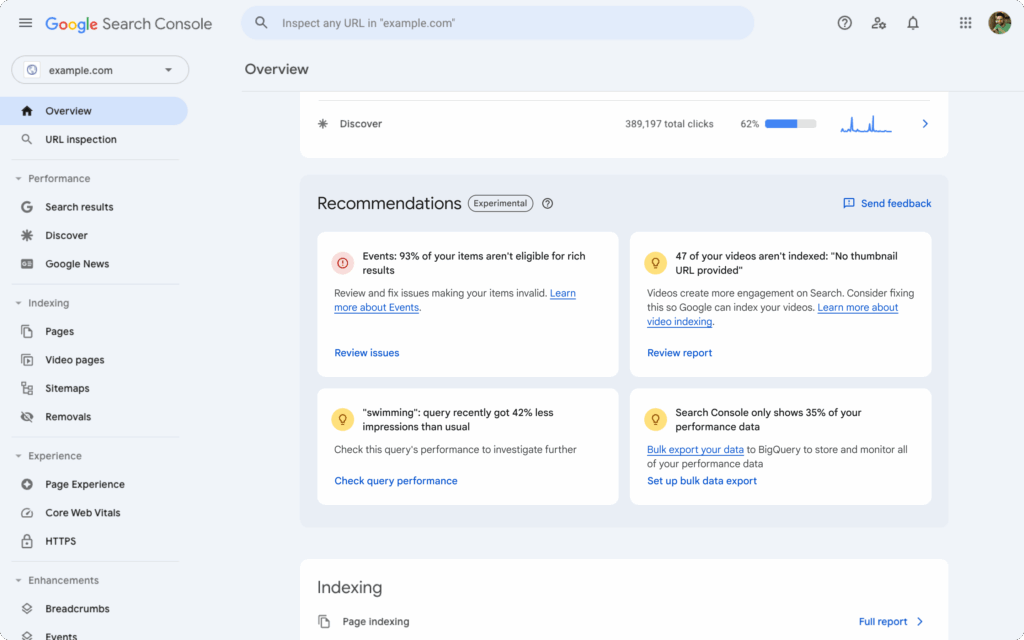
Adapt to Trends
The internet isn’t static, and your blog shouldn’t be either. While you don’t need to jump on every new trend, staying up to date helps you stay relevant and serve your audience better.
Watch and adapt when needed:
- New platforms, tools, or content styles
- Changes in SEO or your niche
- Trending topics and audience behavior
- Reader feedback and shifting needs
Blogging is part creativity, part flexibility. The more you learn and adapt, the more you grow.
Your Blogging Journey Starts Now
So now, you have everything you need. You got the roadmap, the tools, and the knowledge that it is the perfect time to start blogging. The difference between successful bloggers and everyone else isn’t talent or luck. It’s simply that they started.
Here’s Your Next Step:
- Pick your niche,
- Set up WordPress,
- And publish your first post.
It doesn’t need to be perfect. It just needs to exist. Every successful blogger started exactly where you are right now, with a blank page and an idea. Your voice matters, your perspective is unique, and people are searching for exactly what you have to offer.
Stop overthinking. You don’t need all the answers. Waiting won’t build your blog.
Write something today. Share what you know. Let the momentum carry you forward.
WordPress, automation, eCommerce and growth marketing specialist, a Core Contributor and Media Corps member blending storytelling with technology to craft purposeful strategies in SEO, email marketing, and beyond.

Subscribe now

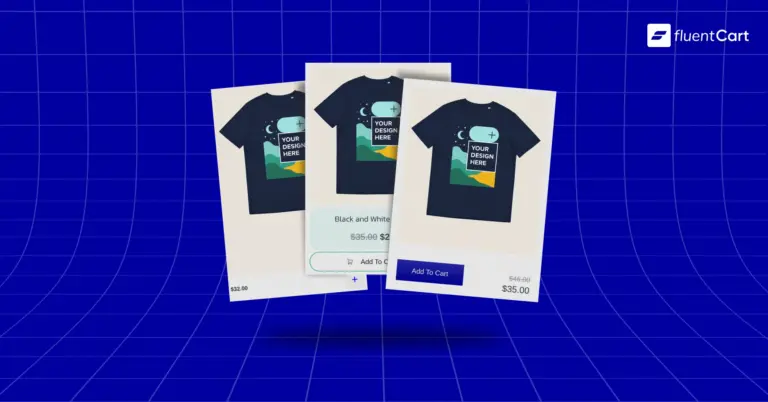
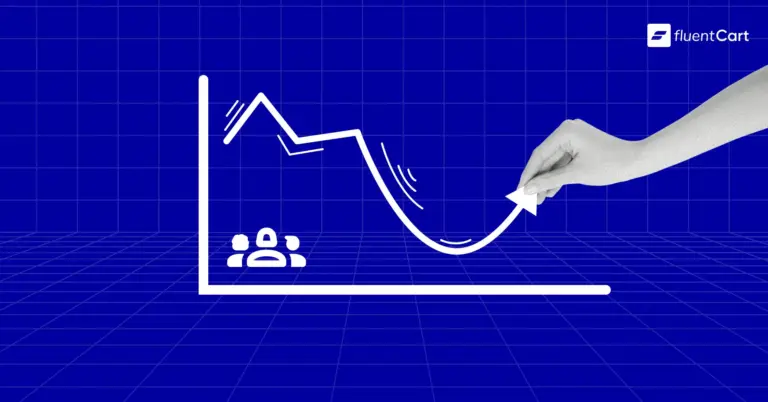
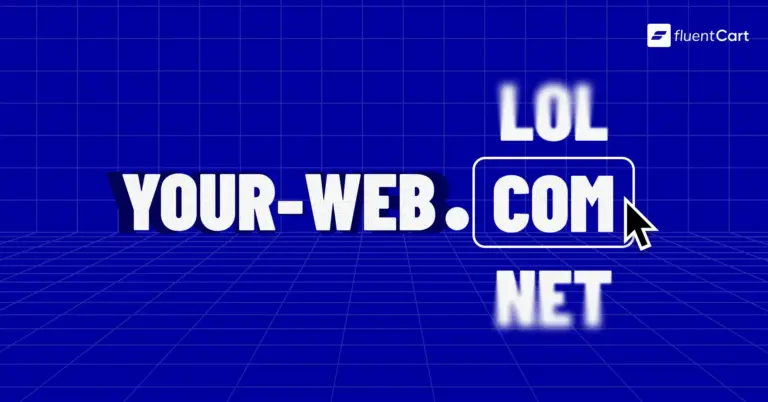
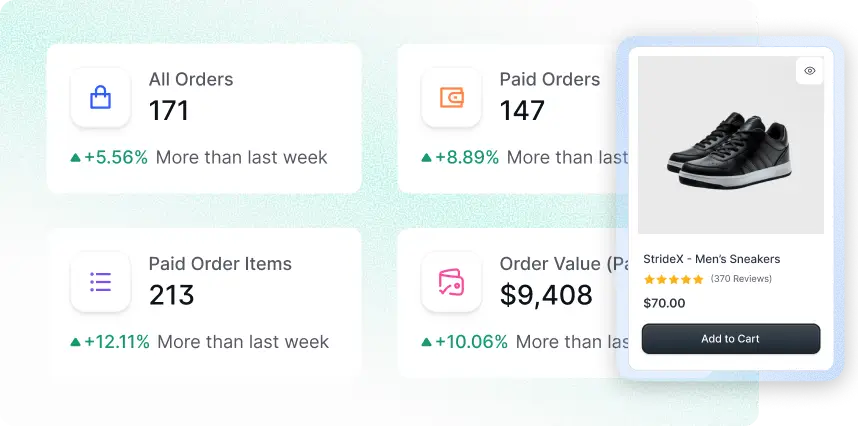


Leave a Reply